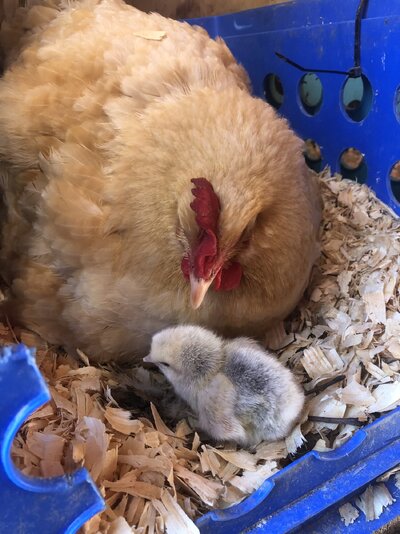Wynnie
Songster
- May 1, 2020
- 50
- 112
- 116
My buff Orpington hen went broody and I was excited to see that her eggs were fertile this time, and I have been candling the eggs every two days. I believe a majority of them are on day 15 or 16. However, when I candled them this morning, I noticed that a couple of them almost seem to be behind in development, maybe on day 11 or 12. I believe I found out they were fertile on day 4, as we didn’t know where she was, and my dogs alerted me to her nest location. When I candled them all this morning, all of them were moving around inside the egg, and seemed to be developing normally. But why would a couple of them look so much less developed than the others? I should note that 3-4 of the eggs have been easier to see through than the others, while the others have remained rather dark throughout the incubation period. But once again, they all seemed healthy and growing this morning. They should start hatching Sunday or Monday, if my days calendar is correct, so I’m probably just going to leave them alone from now on until they hatch, just in case some are more developed than I thought and will hatch sooner.





